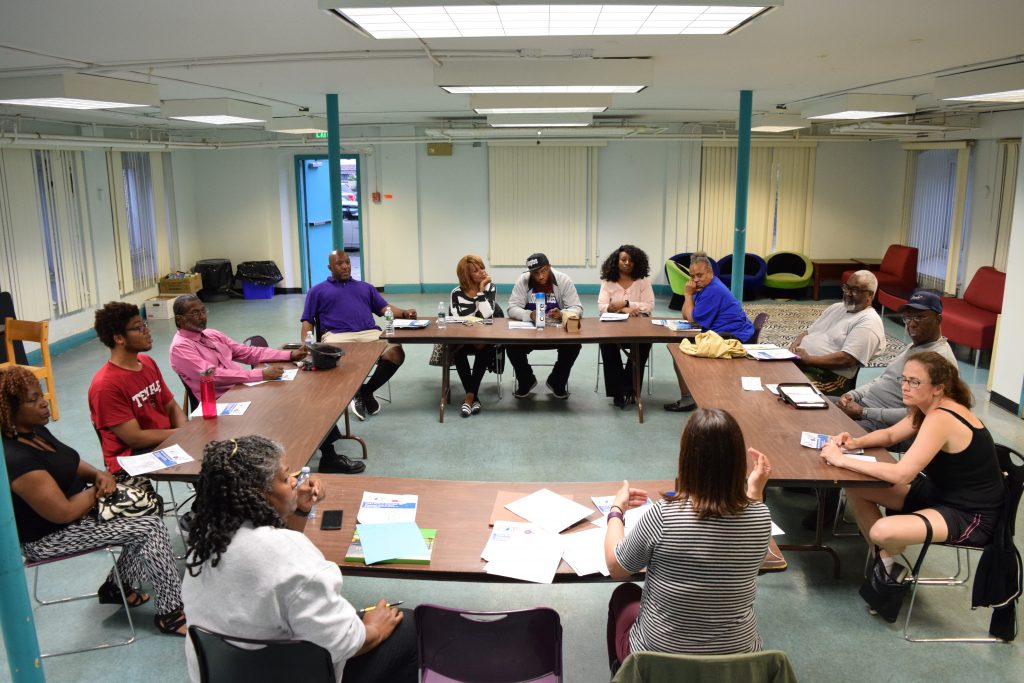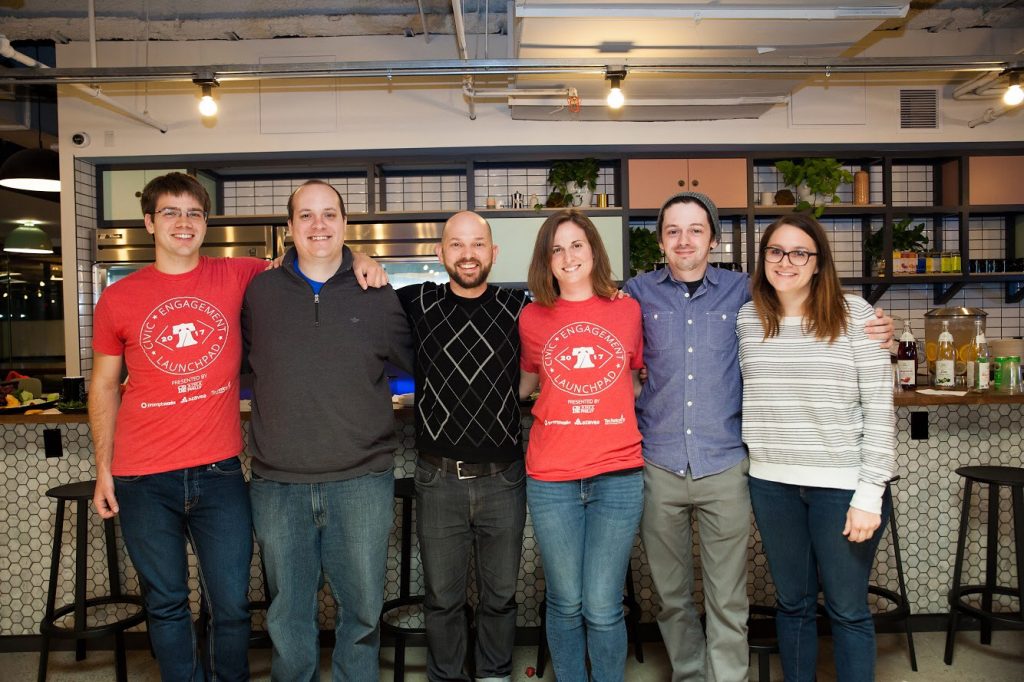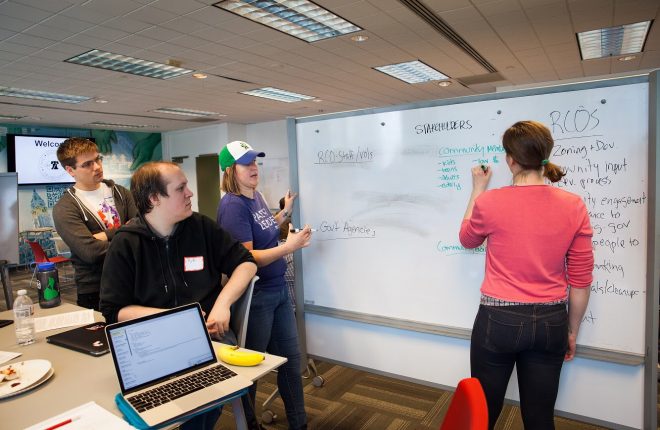(Featured photo by Chris Kendig)
As rush hour fades outside of the Blanche A. Nixon library, Cobbs Creek Neighbors Association president Larissa Mogano and a few first arrivals begin setting up for their monthly meeting. On the agenda: the community’s perspective on Phila2035 West District Plan. Fold-out tables and chairs will accommodate about 15 regulars, and Mogano’s cellphone streaming on Facebook Live could reach many more.
Over a year and a half old with just a two-person board, Cobbs Creek Neighbors is a budding Registered Community Organization (RCO). But like other more long-established RCOs, they have the potential to leave an impact for years to come. For that reason, a Code for Philly project called ‘MyPhilly’ wants to spread community awareness of RCOs with a simple, searchable map.

A map of RCOs shared by the City already exists, but the new app can facilitate new levels of engagement. “[The government resource] serves a lot of different purposes, so you have to dig in the settings to get to the RCO layer,” said Laura Oxenfeld, MyPhilly’s lead user experience designer and project manager. “So ours is just devoted to that.”
Items such as board members, contact information, and registration dates were integrated into the web application using a dataset available on OpenDataPhilly. The MyPhilly team wants to further expand the dataset by collecting social media links, website urls, committees, and mission statements via an automated survey sent directly to the organizations.

Promoting Public Engagement
Increasing involvement in RCOs seems to run into a consistent problem.
“Most people don’t know what RCOs are. That’s sort of my big takeaway,” said Lauren Vidas who initially pitched the idea for MyPhilly at a Code for Philly event last March. Oxenfeld and RCO officials share the same sentiment.
“Being in government is sort of inside baseball and I kind of take it for granted,” said Vidas, who was formerly a Nutter administration staffer.
In late 2012, as part of amendments to the Philadelphia Zoning and Planning code, City Council formalized the longstanding practice of real estate developers and community groups negotiating by defining and regulating RCOs.
Under the rules, an RCO can be a volunteer organization, a Pennsylvania nonprofit corporation, an unincorporated association, a Pennsylvania municipal authority that either serves as a Neighborhood Improvement District Management Association or is itself a Special Services District, or a political committee that represents the members of a political party within a ward.
In Vidas’ experience, before the rules, a developer could meet with one RCO that isn’t representative of the whole community. Now “the zoning code update requires that one RCO for the neighborhood coordinates one meeting where everybody is represented,” she said.
Vidas and Oxenfeld call RCOs quasi-governmental organizations, as they have significant clout over the inner workings of a neighborhood. Part of the goal of MyPhilly is to encourage the groups to be transparent in their practices by providing the public with detailed information about them.
Part of the Big Picture
Many civic associations and neighborhood organizations have cleaning and public safety committees and, by registering as RCOs, are able to also participate in the Zoning Board of Adjustment process. MyPhilly aims to connect people to their local RCO.
Tori Bourret, chair of Cedar Park Neighbors’ communications committee, believes that the information on MyPhilly would be ideal for someone who’s new to a community. After neighbors move away, maintaining connections and resources is important, she says.
However, an online resource like MyPhilly can only reach a finite number of residents. A community with low internet access may respond better to door-to-door flyering than a website.
Bourret recommends diversifying the way RCOs reach out to communities, and “talking to someone in-person can actually do a lot to get someone to an event and more engaged in the community.”
In Chinatown, elderly residents who don’t speak English rely on word of mouth and local-language newspapers, while internet-savvy, non-english speaking residents use the popular Chinese instant-messaging app WeChat, according to Sarah Yeung, the Philadelphia Chinatown Development Corporation’s (PCDC) director of planning and senior project manager.
“For immigrant residents we really depend on communications vehicles that bridge the language gap,” Yeung said. “Having bilingual communications is really important and non-internet vehicles such as word of mouth or local newspapers.”
Back in Cobbs Creek, Mogano has about 750 Facebook followers, a Twitter, an Instagram, and live streams meetings. But she understands all of that is only one part of a complex outreach plan.
In a city where connections are increasingly made online, and facilitated by offline interactions, RCOs are adapting to reach the most neighbors. Powered by open data, MyPhilly is becoming yet another resource in the civic engagement toolbox.

